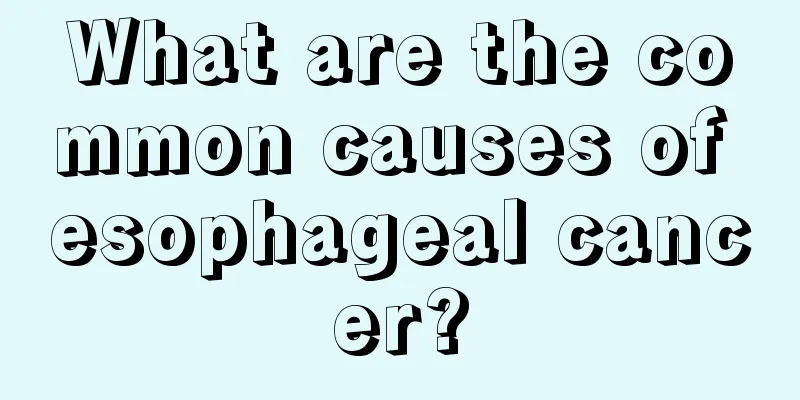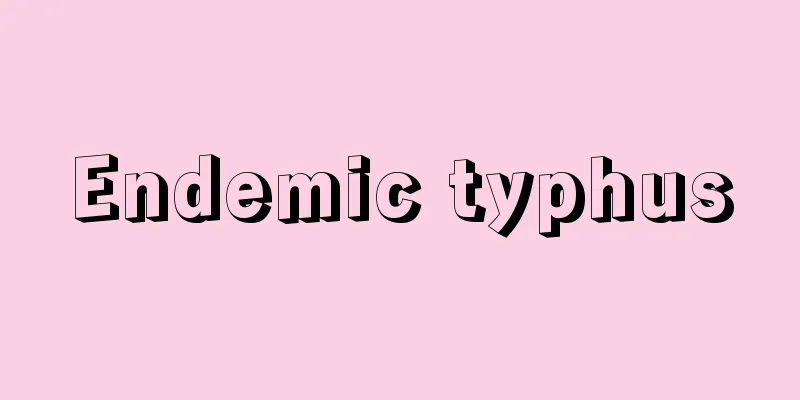Common complications after esophageal tumor surgery

|
Surgery is a major treatment method for esophageal tumors, especially for early esophageal tumors, but surgery is a traumatic treatment after all. After surgery, patients often experience some discomfort. Some of these symptoms are common complications after esophageal tumor surgery. The treatment of common complications after esophageal tumor surgery is of great significance in the treatment of esophageal tumors. Actively treating the complications after esophageal tumor surgery is beneficial to the postoperative recovery of patients with esophageal tumors and has important value in ensuring the effect of surgical treatment. Common complications after esophageal tumor surgery include: 1. Reflux esophagitis Reflux esophagitis is a common complication after esophageal tumor surgery. It is mainly manifested by acidic liquid or food refluxing from the gastroesophageal esophagus to the pharynx or oral cavity when the body is bent forward after each meal or when sleeping in bed at night, accompanied by symptoms such as burning or pain behind the sternum and difficulty swallowing. In response to this situation, certain treatment measures can be taken to alleviate it. For example, patients after esophageal tumor surgery should take a semi-recumbent or sitting position, and can choose liquid or semi-liquid food, eat small amounts and multiple times, swallow slowly, and avoid tobacco, alcohol, spicy and other irritating foods; pay attention to avoid lying flat after meals, raise the head 20-30cm when lying in bed, do not tie the belt too tightly, and pay attention to avoid causing excessive abdominal pressure. 2. Functional gastric emptying disorder Some patients with esophageal tumors also need to have their stomach wall or even part of the stomach removed during resection. The esophagus and stomach are connected, which can affect each other's functions. After esophageal tumor resection, gastric motility disorders are often prone to occur, causing chest and stomach emptying disorders and resulting in a large amount of gastric content retention. Depending on the specific situation, inverted gastric tube drainage, gastric tube gastrointestinal decompression, jejunostomy or gastric juice reinfusion can be given, and enteral and parenteral nutrition support and drug regulation of gastrointestinal function can be given to improve nausea and vomiting symptoms, promote the recovery of the patient's chest and stomach function, and improve the quality of life. 3. Respiratory tract infection after esophageal tumor surgery Although esophageal tumor surgery does not remove lung tissue, it destroys the integrity of the chest, damages the intercostal muscles, and especially the integrity of the diaphragm, which seriously damages the ventilation pump of the affected lung, making it easy to develop respiratory infections. When pain occurs in the neck, chest, or upper abdominal incision, or the stomach is pulled into the chest to compress the lungs, the patient may experience varying degrees of difficulty breathing after surgery, with shallow and rapid breathing. For respiratory infections after esophageal cancer surgery, the main measures are to do a good job of lung monitoring after esophageal cancer surgery, give certain antibiotics, clear the secretions in the respiratory tract in time, and encourage patients to get out of bed and exercise early to exercise lung function. 4. Severe diarrhea after esophageal tumor surgery After esophageal tumor surgery, gastrointestinal dysfunction may occur and severe diarrhea may occur. Analysis shows that the cause may be related to vagus nerve severance, gastrin concentration, etc. The treatment measures are: actively give antidiarrheal drugs and give fluid replacement to prevent dehydration of patients. 5. Anastomotic fistula This is a serious complication after esophageal tumor surgery, with an incidence rate of about 5%. Its cause is related to factors such as the anastomosis method, whether there is tension at the anastomosis, whether there is secondary infection at the anastomosis, and the patient's nutritional status before surgery. Anastomotic fistula usually occurs 4 to 6 days after surgery, but may occur later. In addition to the above-mentioned symptomatic treatment measures, patients after esophageal tumor surgery should cooperate with traditional Chinese medicine treatment in a timely manner to repair the trauma caused by the surgery to the body, accelerate the recovery of body functions, control the recurrence and metastasis of the disease, prevent the occurrence of complications, improve the quality of life of patients after esophageal tumor surgery, and enhance their confidence in treatment. Common complications after esophageal tumor surgery should be actively treated, and the appropriate surgical resection method of esophageal tumor surgery should be selected to reduce the occurrence of surgical complications as much as possible. Esophageal tumor: http://www..com.cn/zhongliu/sda/sdzl.html |
<<: What are the complications of esophageal tumors?
>>: Methods for early diagnosis of esophageal tumors
Recommend
What are the advantages of interventional treatment for liver cancer? Detailed description of several advantages of interventional treatment for liver cancer
Although the term "interventional diagnosis ...
What is the reason for breast bleeding
Female friends should pay attention to caring for...
What are some effective methods to enhance sexual performance?
Premature ejaculation, impotence, etc. lead to we...
Can I run one hour after a meal?
You can run one hour after a meal, which can help...
What to do if a ganglion cyst ruptures
A ganglion cyst is a cystic tumor that appears in...
Are nails bones?
Nails are an organ of the human body and are rela...
Can steaming black fungus with red dates remove freckles?
Some people's skin surface will become very b...
What should I do if I have kidney deficiency and lower back pain?
If the kidneys cause back pain, you must pay atte...
The most effective method to relieve cough and reduce phlegm
Everyone has experienced coughing. Although it is...
Will chromosome 21s be inherited?
There are chromosomes in the human body, but when...
Can sea water cure rhinitis?
Rhinitis is caused by viral and bacterial infecti...
The pain behind my eyes causes a headache
We often hear that we should take good care of ou...
What's wrong with the dent in the middle of the fingernail?
Problems with fingernails are also very common. T...
How to treat female lung cancer? Treatment methods for female lung cancer
Chemotherapy drugs for the treatment of lung canc...
How should we speed up our body’s metabolism?
We often judge a person's health by the speed...









